Technology Licensing Lunch and Learn-Intellectual Property Litigation
Intellectual Property Litigation
Join Technology Licensing for a Lunch and Learn Presentation:
Tuesday, May 21, 2024
11am - 1pm
Location-GTAPS Classroom
Presentation given by Puja Lea, Partner, Troutman Pepper. Puja is a seasoned patent litigator and GT grad!
GT/GTRI Intersection of Biology and Engineering Bi-Monthly Workshop
Join us for presentations and discussion around future research opportunities and how GTRI applied technology capabilities can work with RI's basic science to explore forward-looking opportunities for GT.
IPaT Hosts High School Computer Science Teachers
Mar 29, 2024 —

Georgia high school computer science teachers participating in the Georgia Tech Rural Computer Science Initiative
On March 25-26, the Institute for People and Technology (IPaT) hosted the spring gathering of rural Georgia high school computer science teachers participating in a state funded program to help high schoolers learn computer programming.
The Georgia Tech Rural Computer Science Initiative offers co-teaching lessons prepared by Georgia Tech professors. The program offers virtual classes in computer science to help develop career pathways by exposing high school students to critical areas such as coding, cybersecurity, artificial intelligence, sensors, and data visualization. The program is funded by the Georgia General Assembly.
The initiative, launched in 2022, includes 16 school districts, 19 high schools, and has taught 1,329 students. Continued growth of the program is expected in 2024 as the number of districts participating will grow to 24 school districts.
The program is run by Lizanne DeStefano, director of Georgia Tech’s Center for Education Integrating Science, Mathematics and Computing (CEISMC), and Leigh McCook, director with the Georgia Tech Research Institute (GTRI). There are now thirteen Georgia Tech employees supporting the program across CEISMC, GTRI, and IPaT.
The meeting was designed to gather feedback and envision future directions to make the program even more successful.
2024 BioE Day
Presentations from the 2023 BioE Award Winners, featured BioE Alum Seminars, and a Rapid Fire Thesis Competition. Lunch served (while supplies last!).
Georgia Tech Microsoft CloudHub Partnership Explores Electric Vehicle Adoption
Apr 22, 2024 —
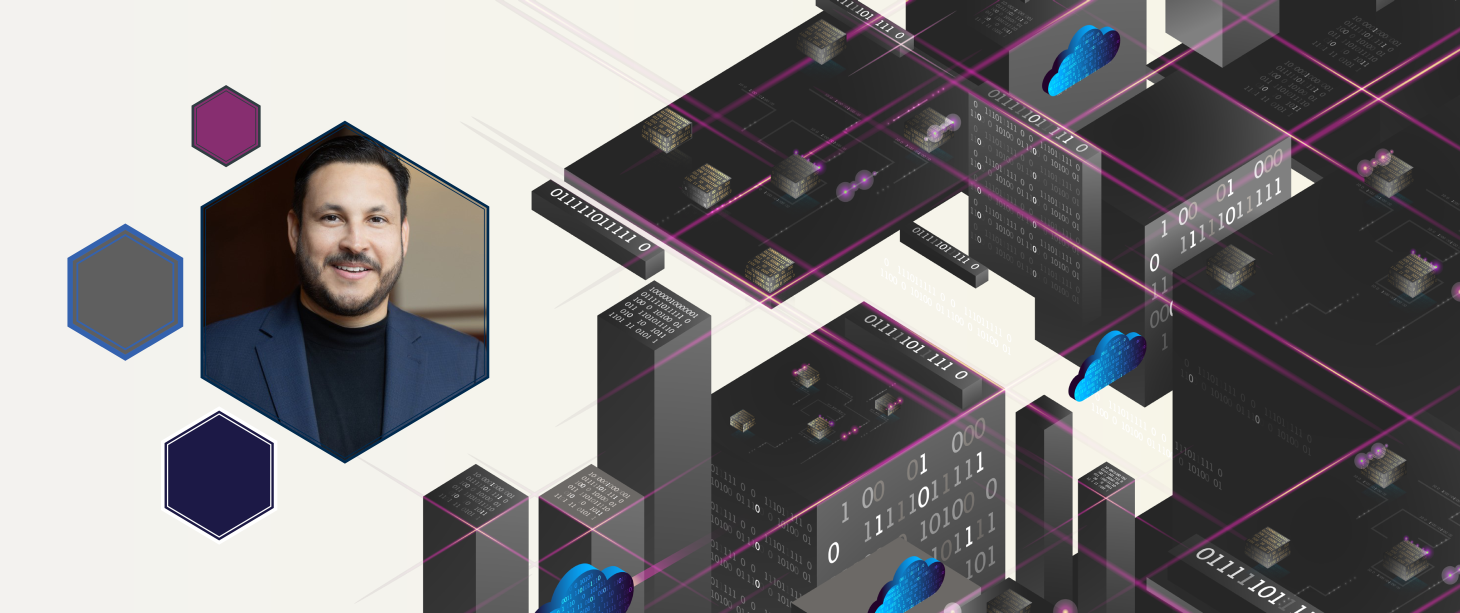
Omar Asensio is Associate Professor at Georgia Institute of Technology and Climate Fellow, Harvard Business School
With new vehicle models being developed by major brands and a growing supply chain, the electric vehicle (EV) revolution seems well underway. But, as consumer purchases of EVs have slowed, car makers have backtracked on planned EV manufacturing investments. A major roadblock to wider EV adoption remains the lack of a fully realized charging infrastructure. At just under 51,000 public charging stations nationwide, and sizeable gaps between urban and rural areas, this inconsistency is a major driver of buyer hesitance.
How do we understand, at a large scale, ways to make it easier for consumers to have confidence in public infrastructure? That is a major issue holding back electrification for many consumer segments.
- Omar Asensio, Associate Professor at Georgia Institute of Technology and Climate Fellow, Harvard Business School | Director, Data Science & Policy Lab
Omar Asensio, associate professor in the School of Public Policy and director of the Data Science and Policy Lab at the Georgia Institute of Technology, and his team have been working to solve this trust issue using the Microsoft CloudHub partnership resources. Asensio is also currently a visiting fellow with the Institute for the Study of Business in Global Society at the Harvard Business School.
The CloudHub partnership gave the Asensio team access to Microsoft’s Azure OpenAI to sift through vast amounts of data collected from different sources to identify relevant connections. Asensio’s team needed to know if AI could understand purchaser sentiment as negative within a population with an internal lingo outside of the general consumer population. Early results yielded little. The team then used specific example data collected from EV enthusiasts to train the AI for a sentiment classification accuracy that now exceeds that of human experts and data parsed from government-funded surveys.
The use of trained AI promises to expedite industry response to consumer sentiment at a much lower cost than previously possible. “What we’re doing with Azure is a lot more scalable,” Asensio said. “We hit a button, and within five to 10 minutes, we had classified all the U.S. data. Then I had my students look at performance in Europe, with urban and non-urban areas. Most recently, we aggregated evidence of stations across East and Southeast Asia, and we used machine learning to translate the data in 72 detected languages.”
We are excited to see how access to compute and AI models is accelerating research and having an impact on important societal issues. Omar's research sheds new light on the gaps in electric vehicle infrastructure and AI enables them to effectively scale their analysis not only in the U.S. but globally.
- Elizabeth Bruce, Director, Technology for Fundamental Rights, Microsoft
Asensio's pioneering work illustrates the interdisciplinary nature of today’s research environment, from machine learning models predicting problems to assisting in improving EV infrastructure. The team is planning on applying the technique to datasets next, to address equity concerns and reduce the number of “charging deserts.” The findings could lead to the creation of policies that help in the adoption of EVs in infrastructure-lacking regions for a true automotive electrification revolution and long-term environmental sustainability in the U.S.
- Christa M. Ernst
Source Paper: Reliability of electric vehicle charging infrastructure: A cross-lingual deep learning approach - ScienceDirect
Christa M. Ernst
Research Communications Program Manager
Topic Expertise: Robotics | Data Sciences| Semiconductor Design & Fab
Research @ the Georgia Institute of Technology
christa.ernst@research.gatech.edu
L[ux] Lab Hosts Medical Device Usability Study
Apr 18, 2024 —
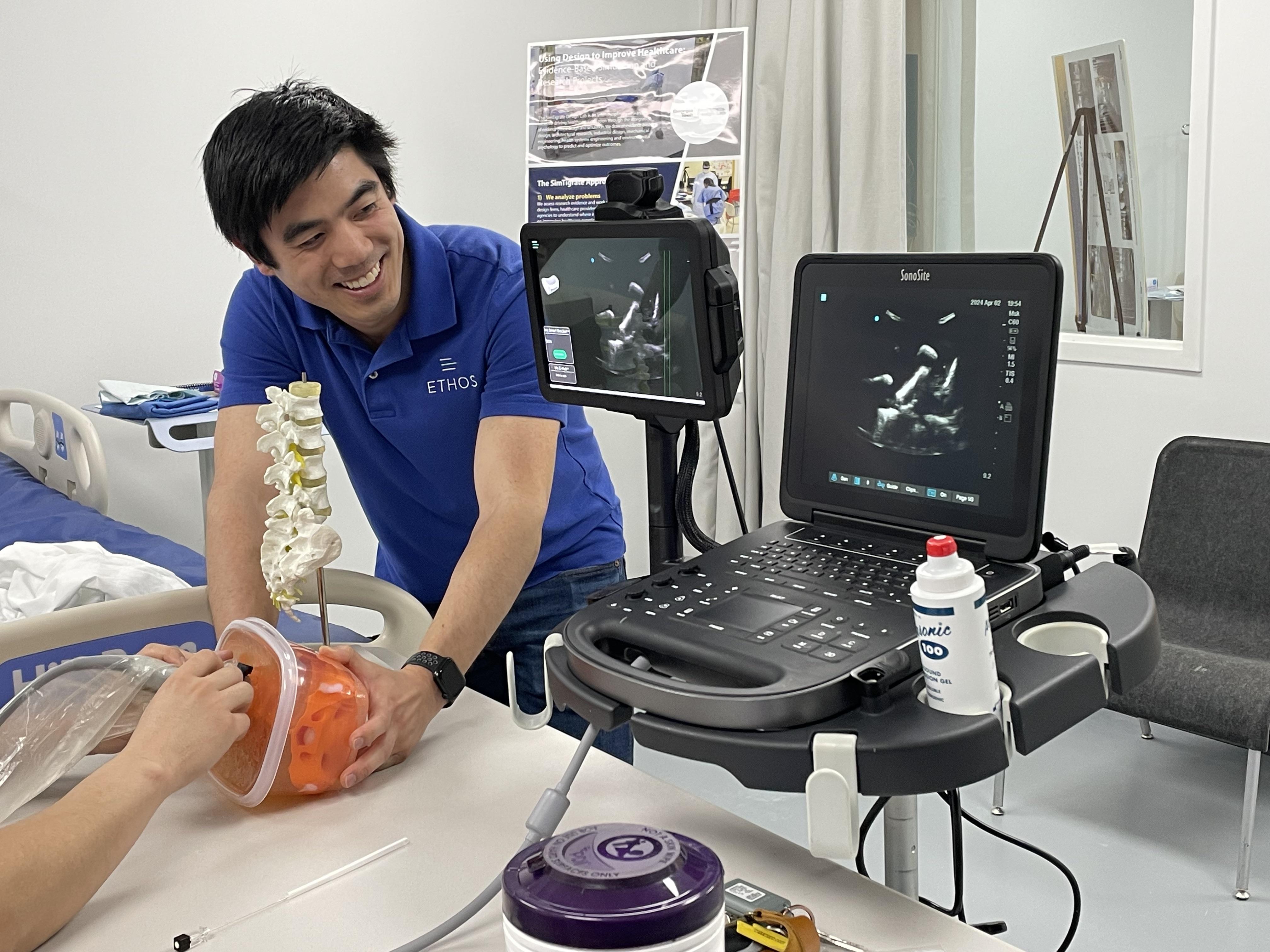
Cassidy Wang interacting with a physician who is testing Ethos' needle guidance system.
Ethos Medical recently made use of the College of Design’s L[ux] Lab to conduct a usability study of its needle guidance system prototype. Founded by Georgia Tech students (now alumni), Ethos Medical won the 2019 Georgia Tech InVenture Prize for their first-of-its-kind medical device.
Using ultrasound imaging technology coupled with a custom-built guidance tool, they invented a guidance system to help physicians navigate needles into the spine accurately and safely. In 2020, they were awarded a Phase I grant from the National Science Foundation’s Small Business Innovation Research program, followed by a Phase II grant in 2021.
Ethos Medical’s co-founders Cassidy Wang, CEO, and Lucas Muller, CTO, personally oversaw the study held in the Technology Square Research Building lab space, working with physicians from local hospitals to better understand the human factors of their novel device.
The study was designed and moderated by Maureen Carroll and Stephen Jones of Creature, an award-winning industrial design firm based in Atlanta.
“Creature and our engineering partner, Enginuity Works, are working to improve the design, human factors, and usability of the system. By using the L[ux] Lab and bringing in emergency room doctors, we can observe physicians using the system and evaluate how well our system integrates with their work process,” said Carroll, founder of Creature.
Several Georgia Tech students from the SimTigrate Design Lab were also present, gaining hands-on experience with the planning and execution of such a study.
Part of the study’s goals are to assess how emergency room clinicians may adapt their existing workflow for performing lumbar punctures to one that incorporates this new needle guidance system while considering realistic procedural and safety constraints. A second goal is to evaluate the ability of clinicians to accomplish specific tasks that require interaction with the user interfaces of the system and identify interfaces and interactions that they perceive to be unintuitive or difficult to perform.
The L[ux] Lab, part of the SimTigrate Design Lab space, is an interdisciplinary research lab using evidence-based design to improve the medical experience for patients and providers. SimTigrate – combining concepts of simulation and integration – grew out of the Healthy Environments Research Group which involved Georgia Tech and Emory University with the goal of improving healthcare outcomes. The lab is affiliated with the Georgia Tech College of Design and is led by Jennifer DuBose, executive director of the SimTigrate Design Lab and principal research associate in the College of Design.
“We’re fortunate that the L[ux] Lab’s simulated clinical environment is so conducive to medical device usability testing, and we’re grateful for all the support shown by Jennifer and the rest of the folks at SimTigrate,” said Wang, CEO of Ethos Medical. “We’ve already begun making improvements to address the friction points discovered during the clinicians’ hands-on interactions. We’re also seeing that many of these practitioners are excited about the capabilities our device brings to the point of care, both for lumbar punctures and beyond!”
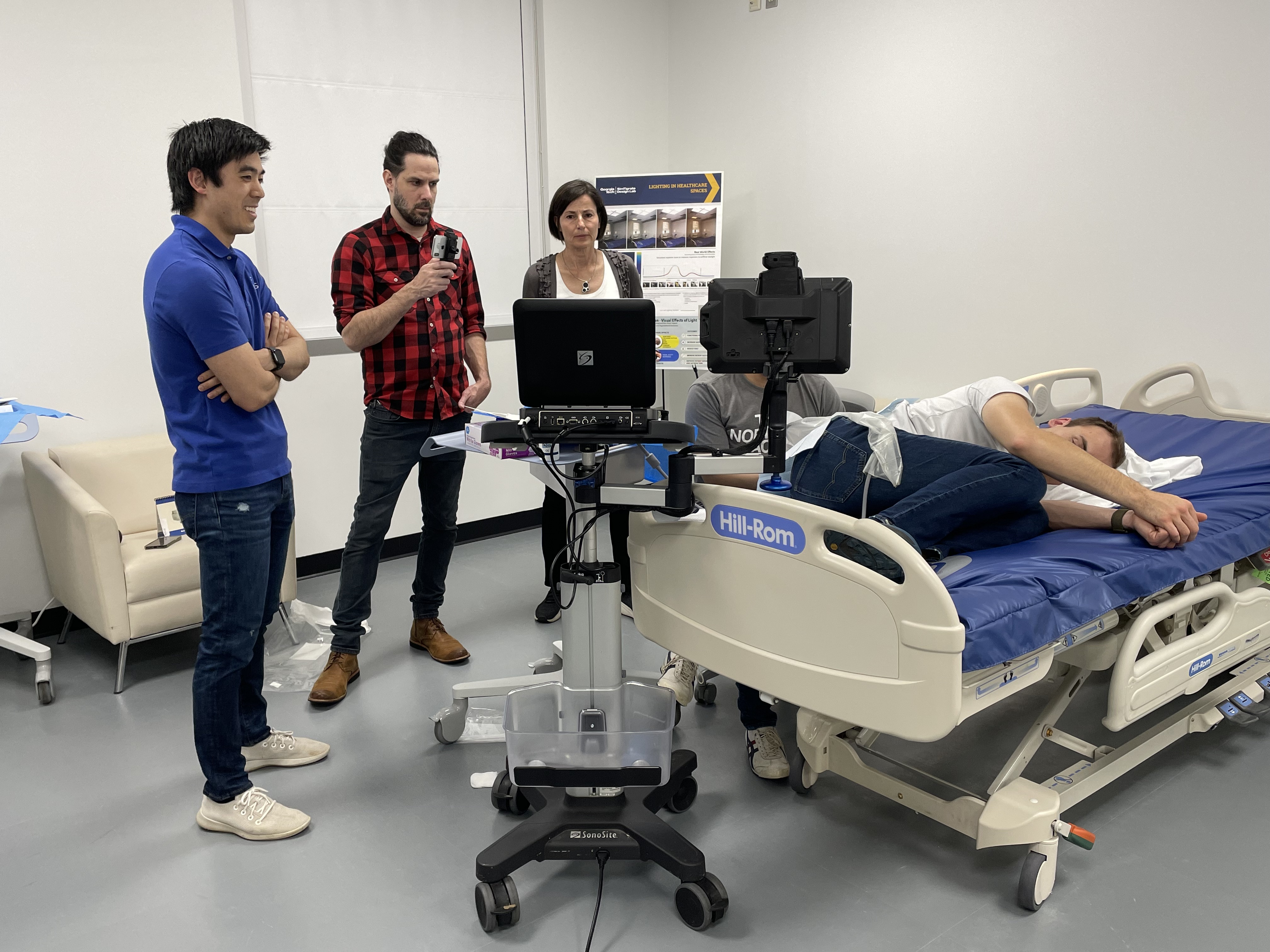
Lucas Muller plays the role of patient as a clinician tests the needle testing system as others observe.
NSF Award to Launch Study of How Older Adults Interact With Robots
Mar 01, 2024 —
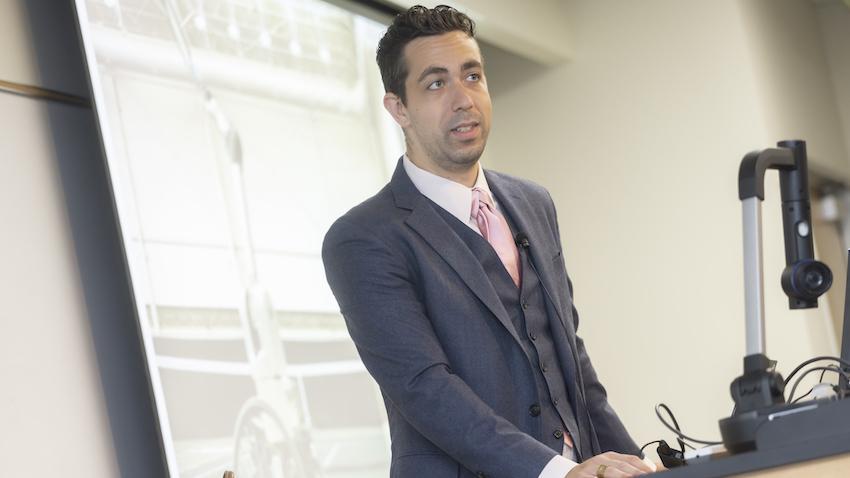
Matthew Gombolay
With the number of older adults in the U.S. population rising and straining the systems in place to take care of them, Matthew Gombolay sees a solution — robots.
Gombolay received a National Science Foundation (NSF) CAREER Award for research that could make assistive robots the standard of care for older adults. The award is the most prestigious the NSF offers to early-career faculty.
“When people age, they deserve to age with dignity and not just be locked away,” said Gombolay, an assistant professor in Georgia Tech’s School of Interactive Computing. “If you don’t have enough resources or access to home nurses or adult children who have extra time to take care of you, what’s going to happen?”
Gombolay will receive nearly $600,000 to collect the largest data set of its kind on how older adults interact and communicate with assistive robots. Gombolay will then use that data to create algorithms that can be deployed in assistive robots and understand the needs of older adults.
Bench2Market Talks
REGISTER HERE
Securing funding for your early-stage startup can be one of the most challenging aspects of entrepreneurship. In addition to providing funds for your startup to develop and grow, investors often play a key role in company management and strategy. View this interactive panel discussion with investors from various firms to learn what they look for in a startup company and how to position yourself for fundraising success.
Safe and Secure Elections Require Interdisciplinary Collaboration
Apr 15, 2024 —
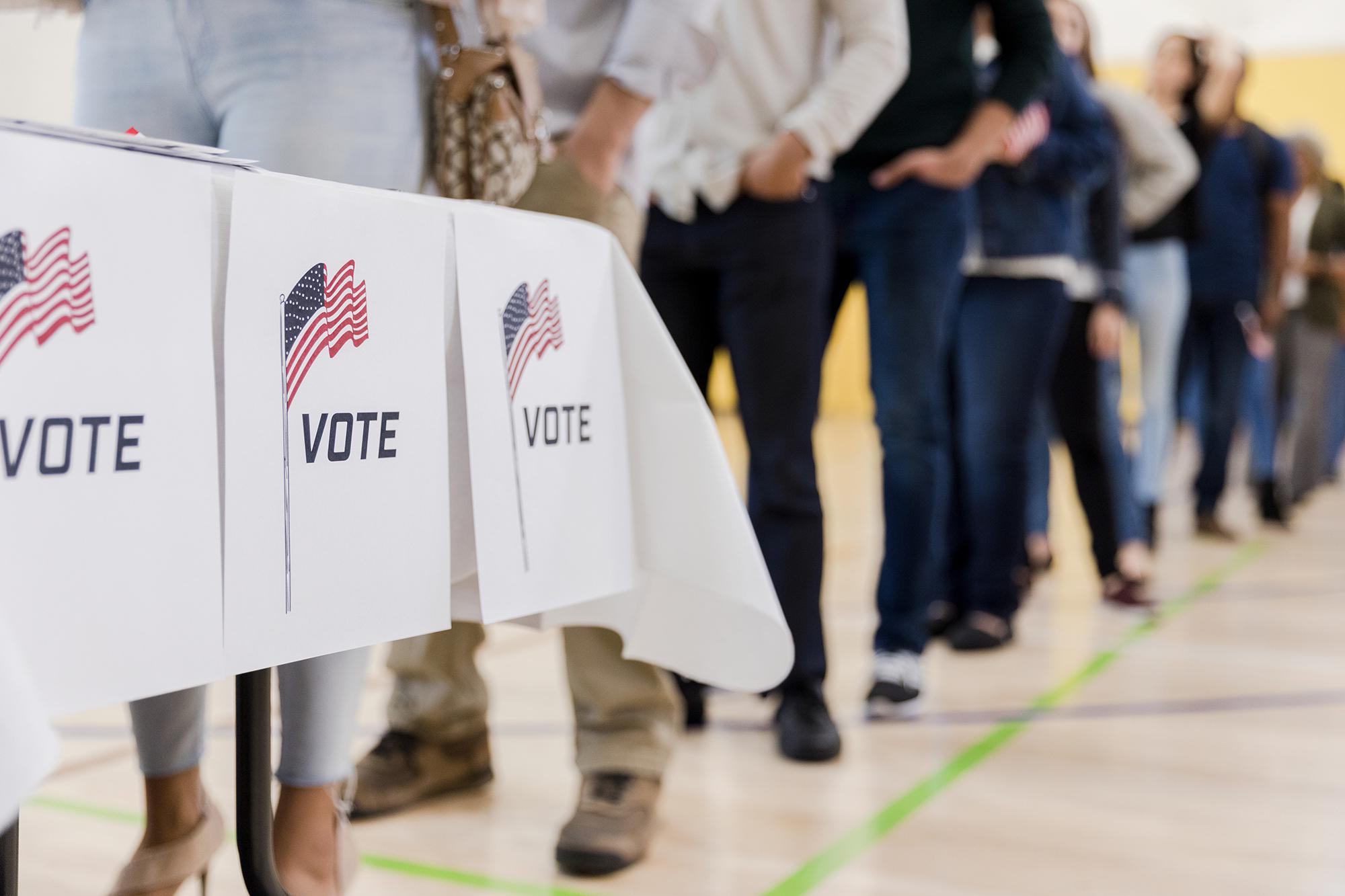
As nearly half of the world’s voting population heads to the polls this year, technology’s impact on elections will be front and center.
It’s a complex issue that is, unfortunately, awash in misunderstanding and misinformation. What’s more, according to Richard DeMillo, professor and founder of the School of Cybersecurity and Privacy (SCP) at Georgia Tech, there is a tendency in technology fields to hyperfocus on technical problems at the expense of complex social realities. “There are famous mathematicians who trained their students to not worry about the real world,” DeMillo says. “But the real world has a way of intruding.”
As a new dean at Georgia Tech in the early 2000s, DeMillo saw voting technology burst into national headlines after the highly contested presidential election between George W. Bush and Al Gore. Congress authorized billions of dollars for states to purchase voting machines, with little to no oversight, and Georgia’s secretary of state was one of the biggest spenders of these federal funds in an attempt to create what DeMillo remembers as “an unambiguously unbiased way of voting.” DeMillo and his cybersecurity colleagues at Georgia Tech put this idea to the test. “It didn’t take much to hack a voting machine in 2002,” he says.
DeMillo has since developed the Safe and Secure Elections research group, an interdisciplinary team from computer science, systems engineering, cognitive science, and international affairs that works on election security in the U.S. and abroad.
Read more about Georgia Tech's support of this public interest technology (PIT) >>
Researcher to Advise WHO on Addressing Loneliness and Social Isolation
Apr 12, 2024 —
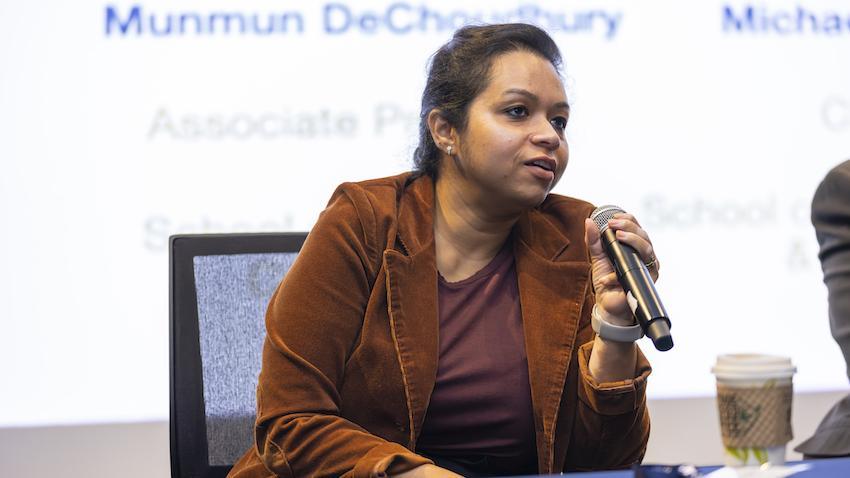
Munmun De Choudhury, an associate professor in the School of Interactive Computing, is one of three U.S. experts on the internationally diverse committee.
The World Health Organization (WHO) has launched a new initiative to raise global awareness of loneliness and social isolation and to reduce their impact.
To stay informed by global experts as it plans potential policies on the subject, the WHO has created the Technical Advisory Group on Social Connection (TAG-SC). The 20-member committee will serve as an advisory body to guide the WHO on how it can increase political visibility, measure the extent of the problem, and identify effective interventions.
Munmun De Choudhury, an associate professor in the School of Interactive Computing, is one of three U.S. experts on the internationally diverse committee.
De Choudhury is renowned for her research on the role of social media and how it shapes and influences mental health. She will serve a two-year term on the advisory group, providing insight to the TAG-SC on how social media and other technologies can affect loneliness and social connection.
“TAGs are the highest level of technical advisors at WHO and are noted to wield significant power as an independent body in shaping evidence-based policies and reforms on issues threatening global health,” De Choudhury said.
“My involvement will center around how social media use relates to mental health and well-being outcomes, spanning varied populations, platforms, and cultural contexts, including the Global North and the Global South.”
The advisory group’s findings will be part of a report that the WHO shares with its member states and partners. The report could guide relevant discussions within the United Nations General Assembly.
“We’re thinking about this question on a global stage, and an organization like WHO can help make this a global focus,” she said. “It’s an issue that is of significance everywhere in the world.”
The WHO estimates that loneliness and social isolation can increase the risk of mortality by 14-32%, which is on par with other well-known risk factors such as smoking and excessive drinking. The Covid-19 pandemic has exacerbated the problem.
“The harmful effects of loneliness are not just harmful mentally, but there are physical health aspects,” De Choudhury said. “Studies have shown that people who felt lonely have shorter life spans than those who felt supported.
“There is an increased risk of things like cardiovascular disease or stroke, and suicide rates are also higher. To ensure our society wants to feel good and healthy, we must tackle this as a problem.”
The TAG-SC will advise the Secretariat of the WHO Commission on Social Connection, which comprises two co-chairs and nine commissioners tasked with making the harms of social isolation and loneliness a global health priority.
De Choudhury said the first step for TAG-SC is to measure the global impact of loneliness. They will do this by developing culturally aware measurement tools to assess the problem in different parts of the world. The process will inform any research, data collection initiatives, or interventions WHO may recommend.
“To take on this challenge, we must figure out the extent of the problem,” she said. “Before we can collect any data or identify potential mitigation strategies, we need to know what we should be measuring, and that’s where this committee plays a role.”
This recognition is the second major committee appointment De Choudhury has received in the last two years. She recently advised the National Academies of Sciences, Engineering, and Medicine (NASEM) on a 250-page report in December detailing social media’s impact on the health of adolescents and children.
Photo by Terence Rushin/College of Computing.
Nathan Deen
